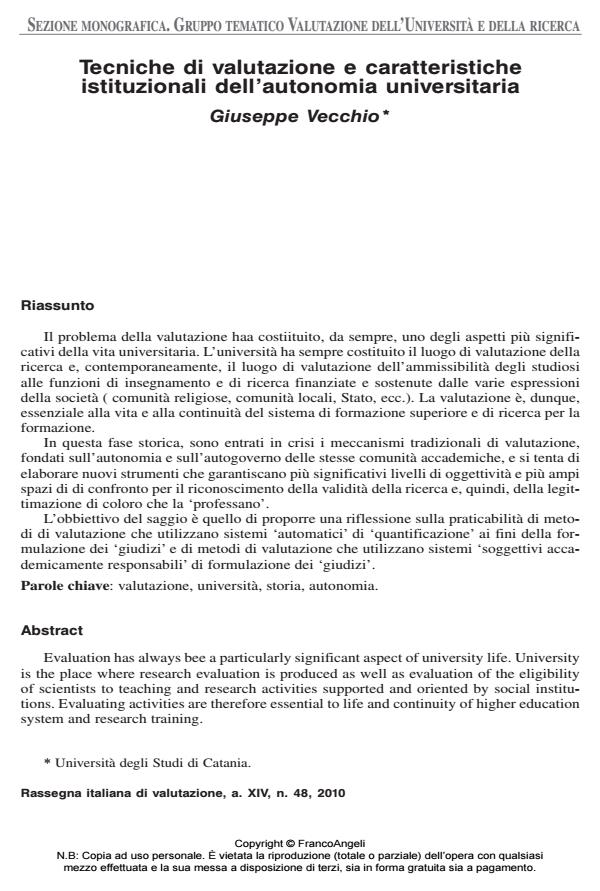Tecniche di valutazione e caratteristiche istituzionali dell'autonomia universitaria
Journal title RIV Rassegna Italiana di Valutazione
Author/s Vecchio Giuseppe
Publishing Year 2012 Issue 2010/48
Language Italian Pages 14 P. 45-58 File size 906 KB
DOI 10.3280/RIV2010-048004
DOI is like a bar code for intellectual property: to have more infomation
click here
Below, you can see the article first page
If you want to buy this article in PDF format, you can do it, following the instructions to buy download credits

FrancoAngeli is member of Publishers International Linking Association, Inc (PILA), a not-for-profit association which run the CrossRef service enabling links to and from online scholarly content.
Evaluation has always bee a particularly significant aspect of university life. University is the place where research evaluation is produced as well as evaluation of the eligibility of scientists to teaching and research activities supported and oriented by social institutions. Evaluating activities are therefore essential to life and continuity of higher education system and research training. At present, traditional mechanisms of evaluation, based on self-autonomy and academic self-government, are at a critical point. New tools are actually used to ensure higher levels of objectivity and more opportunities for research comparison and legitimacy of researchers devoted to it. In this paper I offer a comment on the possibility of introducing quantitative evaluation methods or qualitative, individual and responsive methods for the formulation of reviews.
Keywords: Evaluation, university, history, autonomy.
Vecchio Giuseppe, Tecniche di valutazione e caratteristiche istituzionali dell'autonomia universitaria in "RIV Rassegna Italiana di Valutazione" 48/2010, pp 45-58, DOI: 10.3280/RIV2010-048004